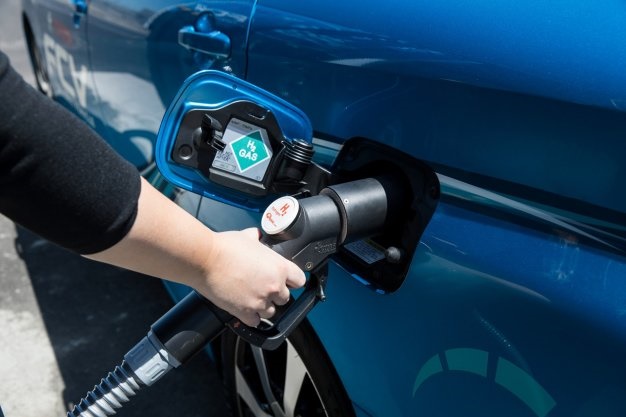
Cape Town - In July of 2008, the spot price of Brent Crude was $145 per barrel. It was a monumental moment, the highest absolute price for oil in history, and ironically at the time perhaps foreshadowing the pending global economic crisis.
Nearly a decade on, Brent Crude is just more than a third of that in price, and if you calculate the effect of inflation, in real terms, it’s even less. In the panic which followed from record oil prices in the late 1990s, there was a tremendous investment into alternative fuels and battery powered automobiles.
READ: 'Filled my tank, got change from R2' - Readers share their cheap SA fuel prices
Tesla ventured to disrupt the luxury performance car market with its Roadster and sedan. BMW launched its i-Cars. Then, oil prices collapsed in 2015 – and the incentives to develop alternatives tumbled into irrelevance with them.
The consensus amongst automotive engineers, who are more important than any of the MBA graduate strategists who work for consulting firms, is that the choice of fuel set to power personal transport for the next 100 years, will be made in the following ten.
Hydrocarbons or batteries?
If you’ve experienced the adverse weather pattern deviations in South Africa over the past year – crippling drought in the Cape, biblical flooding in Gauteng – the question of carbon emissions accelerated global warming is no longer in the realm of academic theory.
Although the automotive industry has done more than any other – especially industrial transport, which uses highly pollutant heavy furnace diesel – to reduce its carbon footprint, the future of personal transportation will not be hydrocarbon fossil fuels. They’ll have to be renewables.
What kind of fuel do you think you'll be using in 15 years? Or, do you see yourself switching to electric/hybrid vehicles soon? Tell us your story via email, Facebook and Twitter.
Battery powered cars, with superior acceleration and similar range to current turbocharged internal combustion vehicles, are our common destiny. Not only do battery cars promise an amazingly rewarding driving experience through corners, with unparalleled torque vectoring and general vehicle mass centrepoints at or below wheel hub height, but they’ll also be infinitely better packaged than current cars.
With the engines and driveshafts out of the way, you have what is essentially a flat-floor architecture to build on, enabling innovate seating and cabin space design.
Best of all, refuelling battery cars can be both cheap and without a trace of environmental degradation... Providing the electricity we charge them with, isn’t fossil fuel generated either. Currently, with much of the world’s global electricity supply not sourcing from renewable sources such as wind or solar, we are simply deferring the carbon-emissions from the vehicle to the plug-in, recharging point. That’s no better than an internal combustion engine.
As electricity infrastructure globally evolved towards sustainables, there can be no argument that battery cars will be out future.
Alternatives? Honda. Toyota. BMW. Mercedes. Hardly insignificant brands and all of them have invested greatly to make hydrogen the fuel of our automotive future. It hasn’t worked, though – for a multitude of reasons, the most prominent of which is the sparse distribution of hydrogen refuelling stations.
At a cost of R30m a station, there are only currently 34 hydrogen refuelling points in the entire US – which remains the world’s most important car market. In comparison, the US has nearly 15 000 dedicated electric car quick charge points, and that’s not including the calculation that every household with a power socket can double as an overnight recharging station too.
Without tremendous infrastructure investment in refuelling stations, hydrogen will remain an experiment without impact. Hydrogen has the range advantage over current lithium-ion battery electric cars, but with breakthrough in solid-state lithium-air batteries – due for production in the next decade – conventional production battery cars will have five times their current range. And that will put them on par with fossil fuel powered vehicles.
Consequences of this post-fossil fuel automotive future? For the energy industry, it will be nearly cataclysmic in its disruption. We might not like Big Oil, but depending on Brent Crude tradeable prices, but companies such as Royal Dutch Shell, BP, Chevron and Exxon Mobil are amongst those with the largest market capitalisations. And that’s where most of your pension is invested.
What will happen with them in our battery car future is unknown. But someone, will have to pay the opportunity costs for our cheaper transport and more balanced environment in future. One thing is for sure, the gas extraction, refining and distribution model they are planning on for survival, will have very little to do with powering your car.




 Publications
Publications
 Partners
Partners















